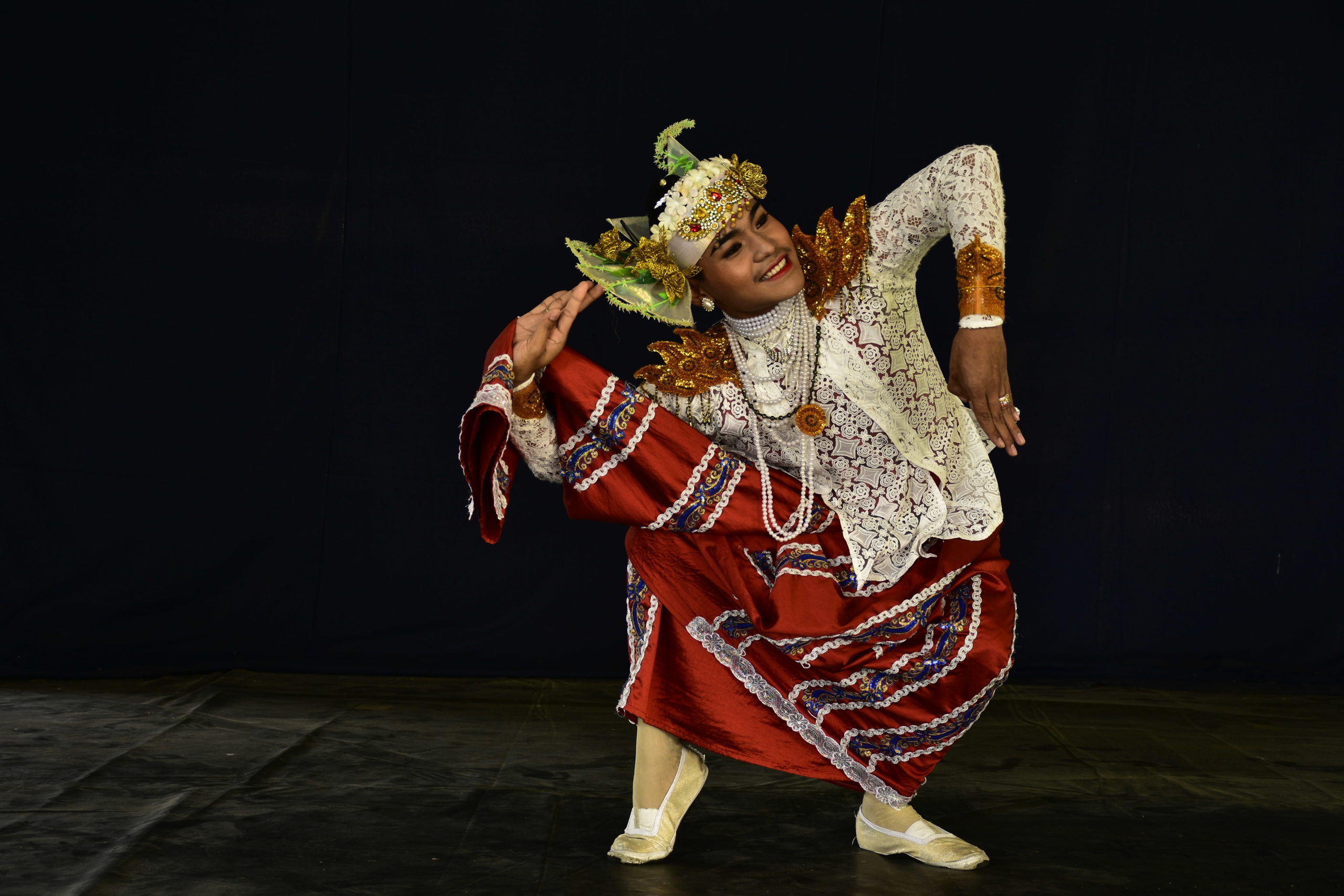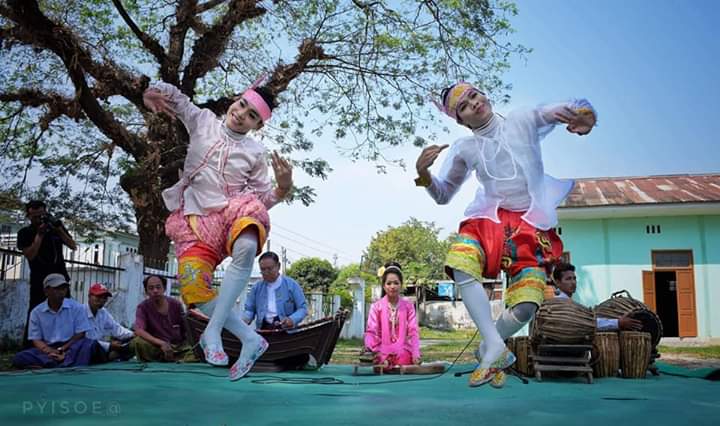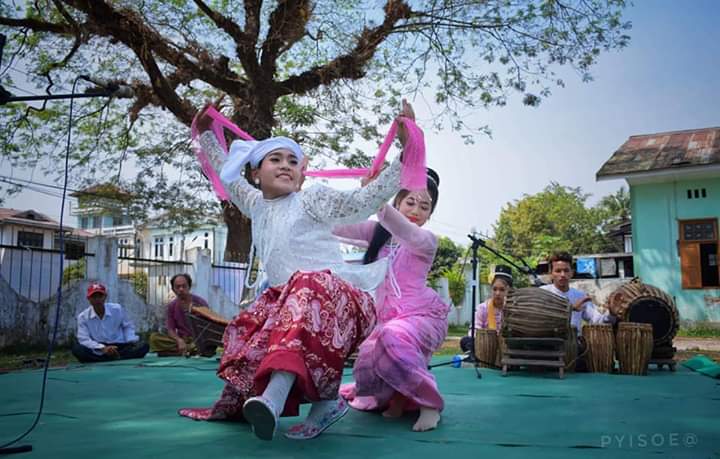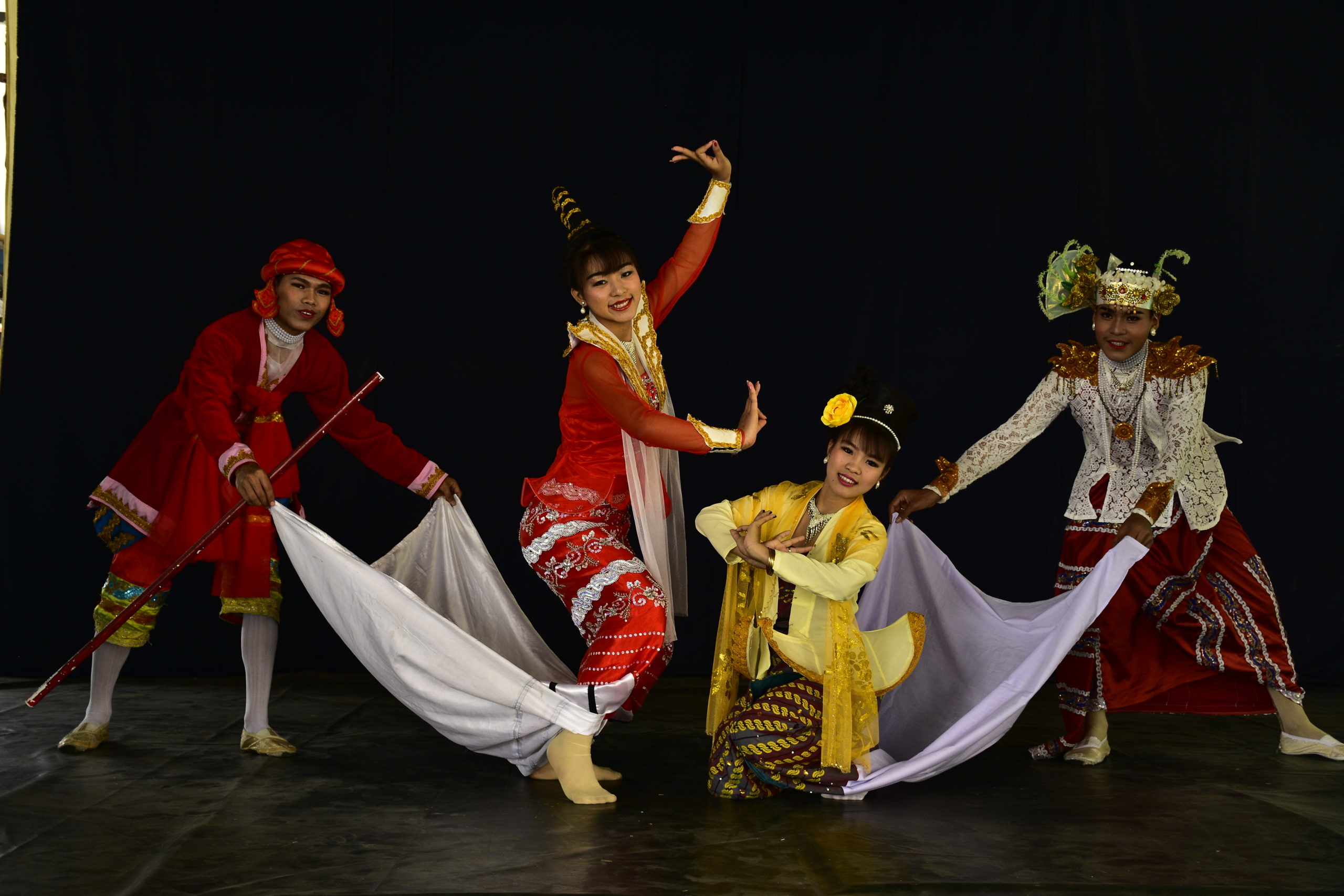Despite their tender age, siblings Myat Thu and Thazin spent much of their young lives working in a bread factory instead of attending school in rural Myanmar. Their parents just couldn’t see the point of investing in education with so many mouths to feed.
Working shoeless on the job, Myat Thu sliced his foot open and his parents, oblivious to the finer points of first aid, were quick to turn to rudimentary healthcare methods. Putting dust on the wound to stop the bleeding, it didn’t take long for an infection to bloom in the dirty cut.
Luckily for the boy, teachers and students intervened to send him to a clinic, saving his life and opening his parents’ eyes to the value of knowledge and education.
In this case, the sibling’s cautionary tale takes place on the stage of the Inwa School of Performing Arts in Mandalay, a young institution where teachers provide academic and social curricula grounded in the performing arts. And though the brother and sister duo are fictionalised, the sentiment underpinning their experience is all too real – especially for the students at Inwa, many of whom hail from beyond Mandalay’s city limits.
In the townships far beyond urban Myanmar, where poverty is high and creative pursuits may seem a rare luxury, engaging in education isn’t high on the agenda for most parents – arts and cultural activities even less so.
“We are in a rural area, and some of the poor children, their parents don’t really want to send them to school, they don’t want them to be educated,” said Htay Htay, principal at Inwa School. “Many parents make their children sell flowers or be beggars.”
The school was founded in 2016 by theatre guitarist Htun Htun and former Massachusetts Institute of Technology professor Dan Ehlirch, with the aim to keep traditional Burmese performing arts alive. Ehlirch, originally from Boston, arrived in Myanmar in 1987. On his first day in the country, his rickshaw guide took him to a traditional Myanmar theatre. Since then, Htun Htun said, Ehlirch has been passionate about traditional Myanmar theatre.
Today, the school provides 14 girls and 10 boys aged 15-21 years with food, housing and free tuition, allowing students from poor rural families to receive an arts education. Inwa’s academic curriculum teaches students to speak English, while as part of its artistic curriculum, students learn traditional Burmese music and dance, as well as global art forms such as spoken-word poetry and hip-hop.
Even before they graduate, Inwa students get a chance to showcase their talents for the world at the Asian Youth Theatre Festival (AYTF), an annual performing arts festival organised by the Singapore-based Buds Theatre Company. From its home in the city-state, the theatre company reaches out across the region to shine a spotlight on theatre and dance performances from Southeast Asian arts groups.

Claire Devine, Buds’s artistic director, said that this year’s festival was scheduled to take place in Inwa’s home city of Mandalay, but due to the fallout of the Covid-19 pandemic the performances now will be featured on AYTF’s website from 19-22 November.
The possibility of performing worldwide, Devine believes, provides students at Inwa with something to aim for, as well as transferable skills in the long run.
“They can either teach what they learn, or they can go on and join other performance groups,” she said. “If they want to go out and travel to other countries to share their art forms, that’s also a potential, so it gives hope.”
Though the official number of people living in poverty in Myanmar nearly halved from 2005-2017, falling from 48.2% to just shy of 25%, Myanmar remains a country with a pronounced urban-rural divide.
As of 2019, just under 70% of Myanmar’s 54 million residents live in rural areas, where people are 2.7 times more likely to live in poverty than their urban counterparts. Fuelled in no small part by ongoing violent conflict, ethnic minority areas with low levels of development like Chin and Rakhine states have the highest rates of poverty in Myanmar.
“We did about 20 performances in the Chin state,” said Htun Htun. “The aim of the festival is change through theatre. For example last year we did a performance about inclusivity and tolerance.”
This is a sentiment shared by Devine and British theatre teacher Lisa O’Neil, who together founded Buds in 2000 to promote theatre as a vehicle for change. Performances at the AYTF tackle community issues, Devine said, with this year’s entries zooming in on human trafficking and education.
In our dormitories, we don’t have gender discrimination. We all stay together, we all have equal rights, equal chances. We share everything equally
Through helping them to create performances about these issues, sparking a dialogue on some of the region’s more taboo topics, Devine hopes to empower youth at schools and theatre groups like Inwa across Southeast Asia.
“When we had our residency in June, I think there were 40 people involved in the residency,” she said. “Out of those 40, I’d say 35 were feeling depressed, and there was a certain sense of gloom and doom and ‘this is the end’. I think through the residency we offered hope and potential for the future.”
With its focus on social issues, Devine said, the upcoming festival represents more than just an opportunity to perform, but also a means for “propelling us all forward”.
“That’s what it’s all about, shining a bit of light, and using each other to share that light,” she said.
Mandalay being chosen as host city for this year’s festival held great significance for the Inwa team. But though it’s moved online, Htun Htun and Htay Htay still seek to promote their school’s forward thinking values, while also displaying Myanmar’s traditional performing arts in an age in which they feel they are being forgotten.
“We had great expectations to hold the festival physically, because Mandalay is an artist’s city. We have traditional theatre and very strong culture,” Htun Htun said. “So I want to introduce that kind of culture to Mandalay artists – but unfortunately we didn’t have a chance to hold the festival [in person], we are very upset about that.”
The now-cancelled play that the students had planned for the live theatre performance was originally about fake news.
It followed the path of a rumour planted online as a joke but ending in a violent clash between neighbouring villages – an all-too-real story in Myanmar, where ethnic strife amplified by misinformation has split the country into long-running civil wars. In recent years, too, Facebook has played an increasingly dangerous role in the spread of hate speech in Myanmar, with firebrand Buddhist monk Wirathu booted off the platform in 2018 for inciting anti-Muslim violence.
It’s against realities such as this that both Inwa and Buds embrace a progressive vision.


“We are a small fringe theatre company, and we use theatre as a vehicle for change. Meaning that all the work we do, whether that’s education, or theatre performances and productions, is all about social issues – issues within the community that need to be resolved or addressed,” Devine said.
Beyond racial tolerance, Htay Htay and Htun Htun promote values of gender equality and tolerance of diversity. Beyond the walls of their school, Myanmar’s gender inequality can be seen in disproportionate male-female participation in the world of work – only 47.5% of women in Myanmar reported in the workforce in 2019 – and high levels of physical or sexual intimate partner violence.
But at Inwa, Htay Htay and Htun Htun hope to instill new norms in their students.
“In our dormitories, we don’t have gender discrimination,” Htay Htay said. “We all stay together, we all have equal rights, equal chances. We share everything equally.”
The forward-facing outlook doesn’t necessarily mean a break with the past. Inwa’s curricula embraces traditional Burmese music and dance, teaching students classical, fast-paced rhythms on the xylophone, drums, cymbal and clapper.
Burmese dancing shares some aesthetic points with that of neighbouring Thailand and even farther-flung Cambodia, with dancers contorting their fingers and bodies in a fluid step. These similarities notwithstanding, Htun Htun maintains the moves are more athletic, calling on dancers to use every part of their bodies.
In the face of an increasingly globally conscious youth, Htun Htun and Htay Htay are adamant about teaching students classical Burmese music and dance to preserve these distinct forms.
“I want people to value our culture. Nowadays the new generation of youth are only focusing on modern music and dance, like K-pop,” Htay Htay said. “They want to learn that kind of dance. That’s good, they should learn it, but we also should value our traditional dance.”
For enquiries and information about AYTF 2020, email: info@aytfest.com


